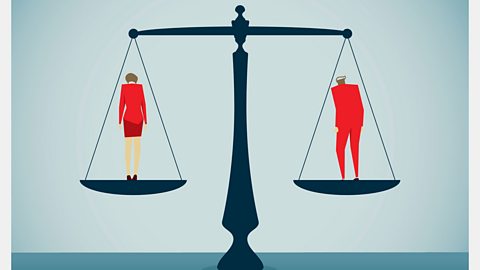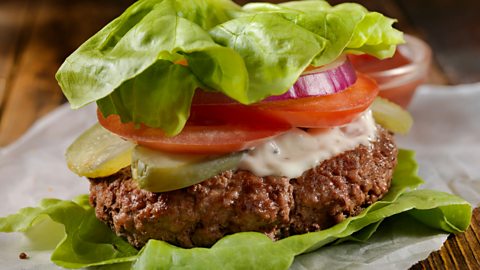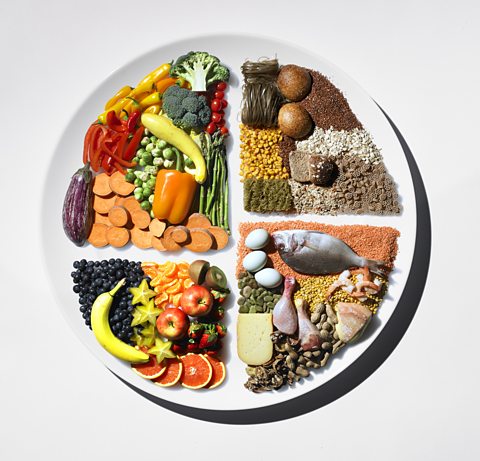Do men and women lose weight differently?
You’ve been focussed and not strayed from your diet all week. It’s time to step on the scales and see if the hard work’s paid off.
Then… disappointment. The number looking back at you is not what you expected. You feel a mix of frustration and injustice.
If you’ve ever stood on the scales and seen the number refusing to budge, you’ll know how irritating it is. Could the problem be that your weight-loss plan is unsuited to your gender? And do men really find it easier than women to lose weight? The answers might be more complicated than you’d think…

Headlines may not tell the full story
Last year, new research had everyone shouting ‘I KNEW IT!’
The University of Copenhagen – along with eight other research institutions – had embarked on a study that put 2,500 pre-diabetic and overweight people on a strict eight-week calorie-controlled diet. The result? On average men lost 11.8kg, but women ‘only’ dropped 10.2kg.
The headlines wrote themselves. Finally there was evidence men find it easier than women to lose weight. However, the statistics didn’t tell the full story.
A University of Nottingham Professor Ian Macdonald was involved in the study and explains, “It was disappointing the media picked up on the differences without understanding a bit of the mathematics”. The focus on the differences in end weight was, he says, “unfortunate”.
The reason being? All the participants on the study were given the same amount of food (810 calories) with no allowance made for the men having a greater energy deficit. The men were bigger to begin with (on average 109kg compared to the women’s 96kg), so had more weight to lose.
“It was just a consequence of the difference in body size. If we’d had small men and larger women, it would have been the other way around”, explains the professor.
This wasn’t an oversight by the scientists. The eight-week plan wasn’t the main focus of the research, but just the start of a further three-year study. “Participants had to lose eight percent of body weight in this eight-week period in order to be recruited into the randomised diet and exercise maintenance period for the next three years, as part of a diabetes prevention study”, says Professor Macdonald.
There were also reports that the men lost ‘better’ weight than the women – their blood pressure and heart rate dropped more and there were differences in the level of the cholesterol drop. But, says Professor Macdonald, “While there were some statistical differences, in terms of clinical relevance they weren’t major differences that you would be concerned about. Both sexes experienced benefits from the weight loss.”
That doesn’t mean there aren’t differences in the way men and women lose weight

Professor Ian Macdonald admits there are differences in weight loss between men and women, though.
“For the same body mass index, men will tend to have a greater fat-free mass (muscle) and a smaller fat mass or proportional fat mass. That’s because of the effect of sex hormones on body fat mass as well as fat distribution.”
Because of this “Women generally find it slightly harder to lose weight”, according to Dr Tom Little, a nutrition specialist and founder of Colour-Fit. “Men have more testosterone and are genetically designed to have a higher percentage of muscle and less fat. Muscle mass has a higher metabolism than fat and therefore the more muscle you have the more calories you can burn, even when not exercising. However, most studies show that while men initially lose weight faster, differences even out over time.”
Are some diets better suited to men or women?

This summer, new research emerged from the University of Iowa, so new in fact it is yet to be officially published (“we have, thus far, presented only at scientific meetings”, explains principal investigator Dr E Dale Abel). It queried whether men are more likely than women to be successful on the popular ketogenic diet.
The study came about by chance. They were investigating the impact of the ketogenic diet as a treatment for heart failure. They noticed male mice on the diet lost weight but female mice gained it. Jesse Cochran, the lead researcher, explains: “We noticed this really pronounced discrepancy between males and females on the ketogenic diet – we thought ‘wow that’s drastic’, so the next question was whether this was reproducible. Every time, we saw these differences – male mice were losing weight, female mice were gaining it.”
To find out if the differences were due to sex hormones, they studied female mice who had had their ovaries removed to mimic a post-menopausal state. They found while they gained weight (because they were now oestrogen-deficient), it wasn’t exacerbated by the ketogenic diet.
The university scientists are keen to add disclaimers to their research. Firstly, although the mice lost muscle as well as fat, this could have been because the mouse version of keto is protein-restricted (which is required for mice on this diet to produce ketones). Humans continue to eat protein on the keto diet, so it might not cause muscle loss.
Dr Abel and the team have already received media attention on the study, after presenting it at scientific meetings. “I’ve got a lot of anecdotes coming back to me from women or their healthcare providers saying, ‘gee, this kind of makes sense, I always wondered why (it didn’t work for me)’. But I have the big caveat that a mouse is not a person. We may get an insight, and we’re certainly looking at molecular insights and other hormones that might help us understand the difference between males and females. The key requirement is that if there are human trials, care really needs to be taken to determine sex differences in response to these diets”, he adds.
One reason we don’t yet have a clear-cut answer to whether some diets are better suited to men or women is because a lot of research is based on men or male animals alone. Dr Abel explains, “In medicine in general, a lot of what we do in practice has historically been based on studies performed on men. There is a growing realisation that you have to control for sex in these studies, so I think an observation like the one Jesse has made is crucial as it highlights there are fundamental differences in the biology.”
Should you choose a weight-loss plan based on gender?...

…Not until there’s further research that clarifies matters. But Rick Miller, the Principal Dietitian at London’s King Edward VII’s Hospital, explains there are some considerations you can take.
“Plans based around sex might offer some personalisation around exercise choices or variations that may suit men or women better. But in terms of nutrition, broad requirements for protein, carbohydrate and fat are based on body composition (fat to lean body mass proportions). Therefore, a man and woman of the same proportions will have similar calorie and nutrient needs per day.
“When it comes to micronutrients (vitamins and minerals), there are some differences between men and women. For instance, menstruation increases a woman’s iron needs due to the blood loss.
“Otherwise, the key to any nutrition plan’s success is personalisation to lifestyle, medical history and goals.”
While we do not (yet) have definitive answers to the questions raised, the experts we spoke to do have some advice for dieters, irrespective of gender. They all agree that rather than embarking on a very restrictive diet, it’s better to opt for the ‘slow and steady’ approach – making healthy eating changes that are sustainable in the long term.
“Ask yourself: ‘can I keep up this change for life?’. If the answer is ‘no’, you might need to be a bit more lenient and look at what else you can swap out. This prevents drastic decisions and doesn’t feel like a ‘diet’ as you’re just making small changes”, finishes Rick Millar.